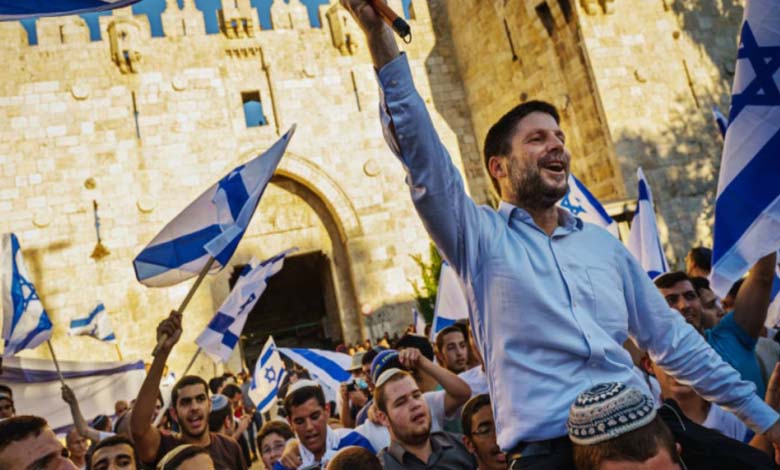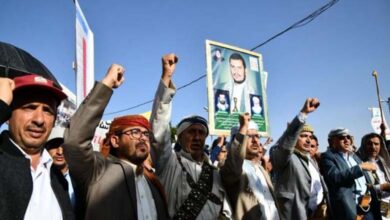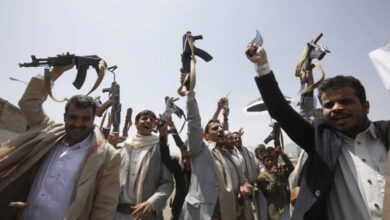Israel’s Alternative Plan in Rafah: Secrets of American Negotiations to Stop Occupation Massacres

American and Israeli officials have said that Israel reformed its military operations in Rafah after intensive discussions with American officials to avoid crossing the red line set by the Biden administration and to prevent a crisis in relations with its closest allies. Israel froze its original plan for a two-part military operation through Rafah, a move that the White House had expressed concerns about, fearing it could lead to an increase in casualties in the conflict that has already resulted in a high number of civilian deaths.
Israel’s Military Campaign
According to the American newspaper “The Wall Street Journal,” instead of its original plan, Israel chose to launch a military campaign focused on closing the border between Gaza and Egypt, as well as conducting raids on Rafah.
The newspaper continued, noting that the quiet reconfiguration of Israel’s war plan allowed the country to steer clear of President Biden‘s warnings to avoid a large-scale ground operation in Gaza City or risk reducing American military support.
This comes as Biden tries to exert more pressure on Hamas and Israel to agree to a ceasefire as part of a three-phase roadmap to end the fighting in the Gaza Strip.
The article pointed out that the scaled-back Israeli military operation still inflicts heavy civilian casualties in Rafah. American and other Western officials have complained about the lack of adequate preparations to provide care for more than 800,000 civilians who fled Rafah during the fighting.
Tensions with Egypt
The American newspaper confirmed that new tensions erupted with Egypt, which refrained from opening the Rafah border crossing as long as the Gazan side was occupied by Israeli forces.
An attempt by Israel to use smaller munitions in its airstrikes highlighted the difficulty of conducting operations in densely populated areas.
Despite using bombs with 37 pounds of explosives, the targeted Israeli airstrike still resulted in the deaths of dozens of civilians, according to Palestinian officials.
Israel said that two senior Hamas officials were killed and suggested that the civilian deaths could be due to secondary explosions from Hamas munitions. However, the incident is still under investigation.
Uncertain Diplomacy
The American newspaper emphasized that the uncertain diplomacy to secure a ceasefire indicates that the debate over the American red line—first mentioned by Biden in March—is likely to resonate in the coming weeks.
Jonathan Panikoff, a former senior U.S. intelligence officer working at the Atlantic Council research center, said, “There was a misunderstanding about what Biden‘s statement about the red line meant.”
Panikoff continued, “For many in the Arab world, it was interpreted that a military operation in Rafah was prohibited if Israel wanted to retain American support.”
The newspaper added that for many in the administration, the intention was never to say that Israel couldn’t carry out a military operation. The intention was to say that Israel could not conduct an operation like it did in Gaza City or Khan Younis, which resulted in high casualties and destruction.
-
Ismail Haniyeh Renews His Rejection of Excluding Hamas from Any Settlement Regardent Gaza’s Future
-
Stubbornness from Hamas and Israeli conditions are dimming hopes for a ceasefire
The concept of a presidential warning about the scope of Israeli military operations in Gaza became a focal point of public debate when an MSNBC anchor asked Biden on March 9 if an “Israeli invasion of Rafah” would cross the “red line” set by the president with Israeli Prime Minister Benjamin Netanyahu.
Three days after that interview, National Security Advisor Jake Sullivan dismissed the red line terminology, calling it a media obsession and “a play in the realm of national security.” Nevertheless, Sullivan said that the president wants Israel to defeat Hamas without unnecessarily endangering Palestinian civilians.












